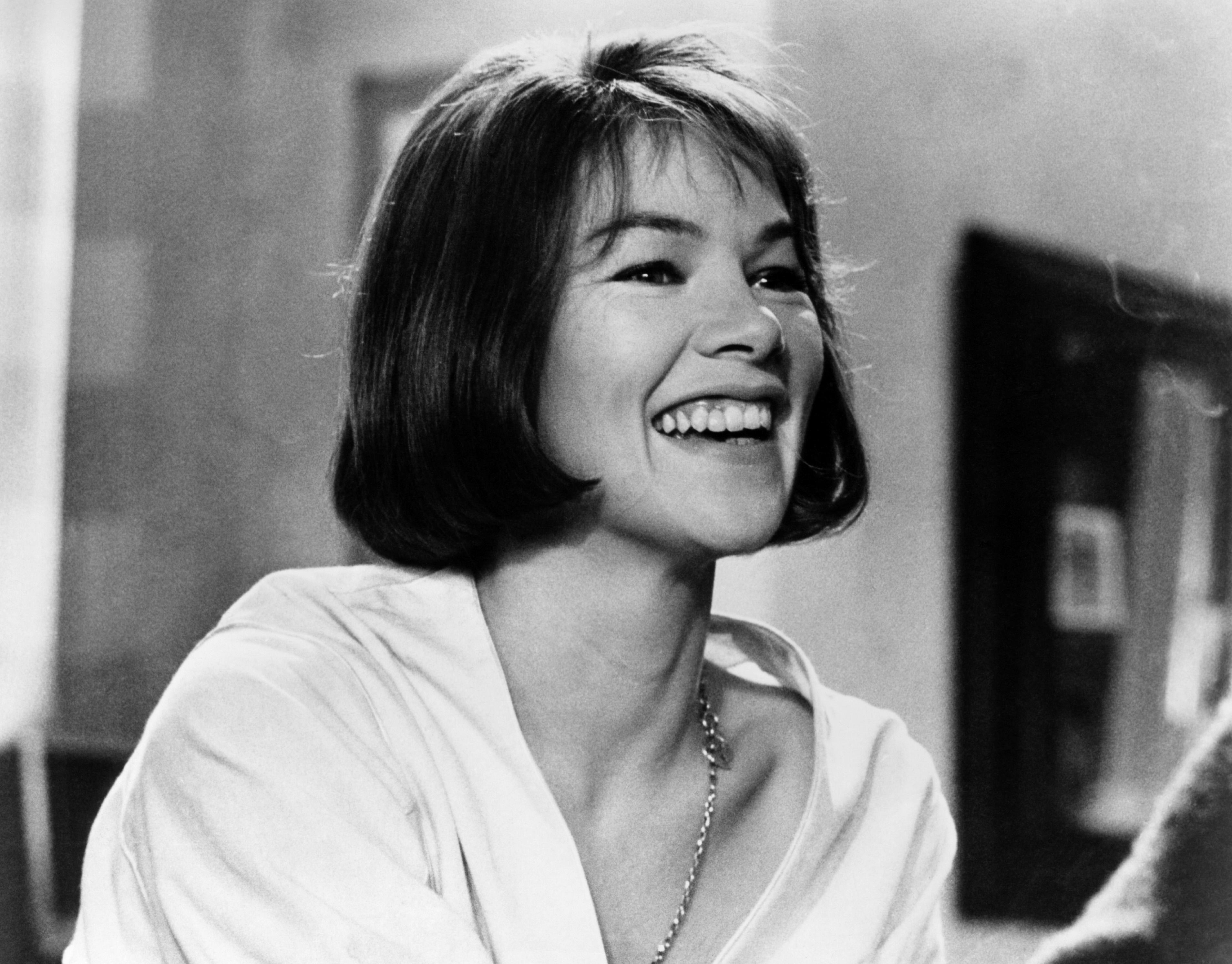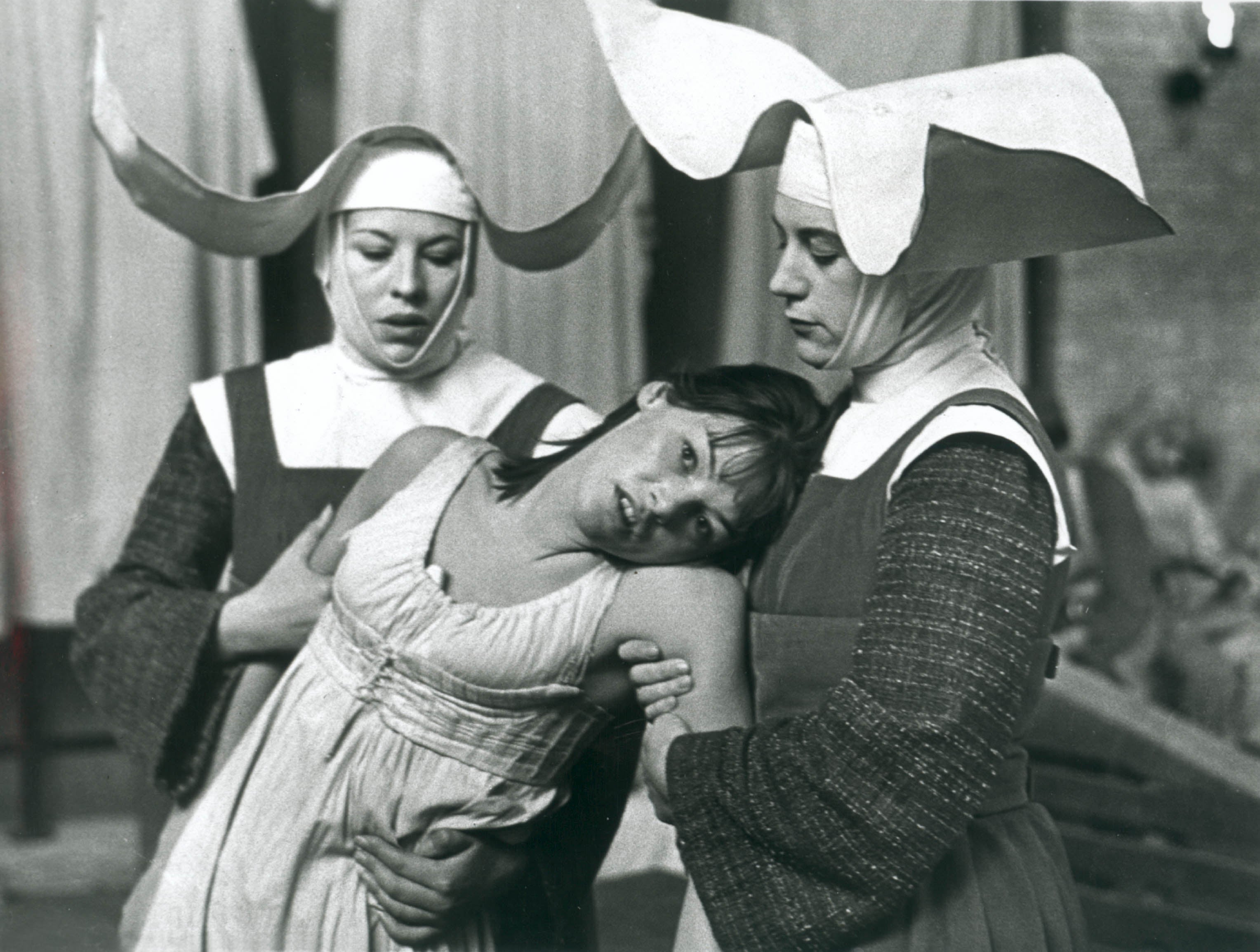Sexy, daring, courageous: Glenda Jackson was a magical force of stage and screen
The actor’s courage, intelligence and capacity to generate raw emotion, along with the beauty and expressiveness of her voice, made her one of a kind, writes Sarah Crompton

I met Glenda Jackson once. She had returned to the British stage at the age of 80 to play King Lear at the Old Vic, and the theatre had asked me to hold a Q&A session with her after the performance. Lear is a long play and this was a long production; I had been sternly warned that I mustn’t overtire her and that the interview had to end after half an hour.
Yet from the moment she walked on stage, to endless applause, there was no stopping her. Her answers weren’t drawn-out, but they were detailed and full of insight. She more or less ignored my questions, talking about what she wanted to speak about and relishing taking questions from the audience. It was utterly riveting, so I just sat back and enjoyed it.
Stage management virtually had to drag us off-stage to get it to stop. The last I saw of Jackson, it was nearly midnight and she was still standing in the theatre lobby, talking animatedly, wrapped in a red coat, unlit cigarette in her hand.
That performance in Deborah Warner’s production as Lear was revelatory. I’d seen her on stage once before, as Racine’s Phedra in a 1984 production directed by Philip Prowse; she was glamorous in costume designs that seemed to gleam even from the top of the balcony. I remembered her capacity to generate emotion, the rawness of feeling that her betrayed queen managed to project. But I had forgotten the sheer expressiveness of her voice, low-pitched and resonant, able to reach the back wall without any seeming effort.
I also loved the way she shrugged on the part of Lear; she didn’t seem to worry too much that she was a woman playing a man, she just played it line by line, finding new meanings and powerful reactions. I saw her again as Lear three years later, on Broadway, in a production directed by Sam Gold, when Ruth Wilson played the Fool and Cordelia. Wilson issued a short statement yesterday. “She taught me how to be and how not to be. To the truly towering and uncompromising Glenda Jackson. I will be forever grateful.”
Towering and uncompromising just about does it. Jackson always gave the impression of being in charge. A working-class girl from Birkenhead, who took up acting because she was bored to death behind the medicine counter in Boots, she won a scholarship to the Royal Academy of Dramatic Art (Rada), and then served her apprenticeship in weekly rep theatre (probably the source of that magnificent vocal control).
But then, in 1965, she made her breakthrough as a terrifying Charlotte Corday in Peter Brook’s production of Marat/Sade. The same year she played “an unusually harsh, turbulent and rebellious Ophelia” to David Warner’s Hamlet, in the words of the academic Jonathan Croall. The critic Penelope Gilliatt suggested she was the only Ophelia she had ever seen who should have played the Prince, though Jackson later turned down the opportunity to play the role.

Eileen Atkins, in her brilliant autobiography Will She Do?, suggests that one reason Jackson was cast over herself in Brook’s 12-strong Theatre of Cruelty company was that in the audition, she’d stepped forward to question his instruction to take her clothes off, while Jackson stripped bare without a second thought. It was another sign of the qualities that from the very start made her so distinctive: courage and a willingness to take risks.
I was too young to see much of her early stage work, sadly. But watching her on screen, I found it blazingly obvious how different she was. Her intelligence illuminated every part she took. For my generation, it was her portrayal of Elizabeth I that made the fiercest mark. Over six episodes, in the BBC’s Elizabeth R in 1971, she took the character from young, frightened beauty to white-faced, balding old woman and commanded every scene she was in, utterly believable both in her authority and her fragility.

I watched it recently. The sets look like cardboard, but that performance is like a beacon of truth and honesty, qualities she also brought to the big screen when she played Elizabeth opposite Vanessa Redgrave’s Mary, Queen of Scots in the film of that name.
It’s easy to underestimate how important that was to women growing up in those years. Jackson was so far from the soft beauties all around her on film and TV. She indelibly created an image of a woman with agency. She had a quality of drawing focus, of making women’s lives and concerns matter, her bravery as clear cut as her cheekbones and short bobbed hair.
Look at her in the two films that won her Oscars. In Ken Russell’s hugely influential Women in Love (1969), her Gudrun is sexy, daring and sophisticated, the driving force of the film. Equally, in A Touch of Class (1973), she takes the Katharine Hepburn role of a confident, sardonic woman, running affectionate rings around her co-star George Segal (whom she much liked, partly because he was as serious about work as she was).

She landed that part because of the gift of comedy she had revealed on The Morecambe and Wise Show, playing Cleopatra and uttering lines such as “All men are fools and what makes them so is having beauty like wot I have got” with a haughty sang froid that made her a perfect foil for the mayhem breaking out all around her. She loved it so much that she returned in subsequent years, which perhaps as much as anything made her an actress the whole of Britain at that moment would have recognised in the street.
But her film career until the 1980s was stellar in every way. She had a knack for choosing roles that broke new ground; she was wonderful in Sunday Bloody Sunday, John Schlesinger’s poignant story of the three-way relationship between her character, a bisexual artist played by Murray Head and Peter Finch’s gay doctor. It was one of the first films to talk about homosexual love, and her performance deepened and expanded it. It won Jackson another Oscar nomination and a Bafta.
Once Jackson trusted someone, she was willing to go the distance for them. Work was work and she got on with it
In 1975, Hedda, a version of her stage performance as Hedda Gabler, directed by Trevor Nunn, landed another Oscar nomination; the withering contempt of her disaffected Hedda virtually shatters the screen.
She didn’t really care about the awards. She always said she gave her Oscars to her mother, who polished them so hard that the gold gilt rubbed off. But the shine stayed on her memories of the performances she loved. When the BFI presented a season of her work in July 2022, the sharpness of her recollections is as vivid as her pleasure in remembering them. Even here, though, the sense that it was Jackson herself who defined herself on stage and screen is clear. Asked what she looked for in a director, she pauses before saying: “Essentially what you want is someone who doesn’t tell you what you want to do, who helps you find what you want to do.”

Once she trusted someone, she was willing to go the distance for them. Work was work and she got on with it. She told one interviewer her story about filming the famous scene in Russell’s The Music Lovers, where, as Tchaikovsky’s unhappy, unsatisfied, neurotic wife, she writhes naked in a railway carriage: the carriage was moving so much that first the luggage, then the bottles on the table and then a cameraman fall on top of her, but Russell kept going. “It didn’t make any difference. I had to get up and do it again.”
It was clearly part and parcel of her character that once she had decided that she was going into politics, she would turn her back on acting. But I remember feeling a terrible sense of loss when hearing of her decision and that she had been elected Labour MP for Hampstead and Highgate in 1992. If you loved theatre and you loved film, the thought that you wouldn’t see Jackson act anymore was melancholy. She seemed such a force and if her constituents benefitted from her efforts and the passion of her beliefs, the stage and screen seemed a little less bright.
That was why her unexpected return to both in her eighties felt such a boon, not just in Lear but in New York in Edward Albee’s Three Tall Women, on radio in the BBC’s adaptation of the novels of Emile Zola Blood Sex and Money, and finally on TV in Elizabeth Is Missing, in which she movingly played a woman with dementia. The latter won her another Bafta and another Emmy.
I won’t ever forget that Lear, seeing her back on stage after a 25-year absence, owning the space once again. Her portrayal was unflinchingly honest, switching in a moment between gentleness and ungovernable rage, between madness and fear of madness, her magical voice filling the theatre, howling in the face of the universe. It was something. She was something.
Join our commenting forum
Join thought-provoking conversations, follow other Independent readers and see their replies
Comments


Bookmark popover
Removed from bookmarks